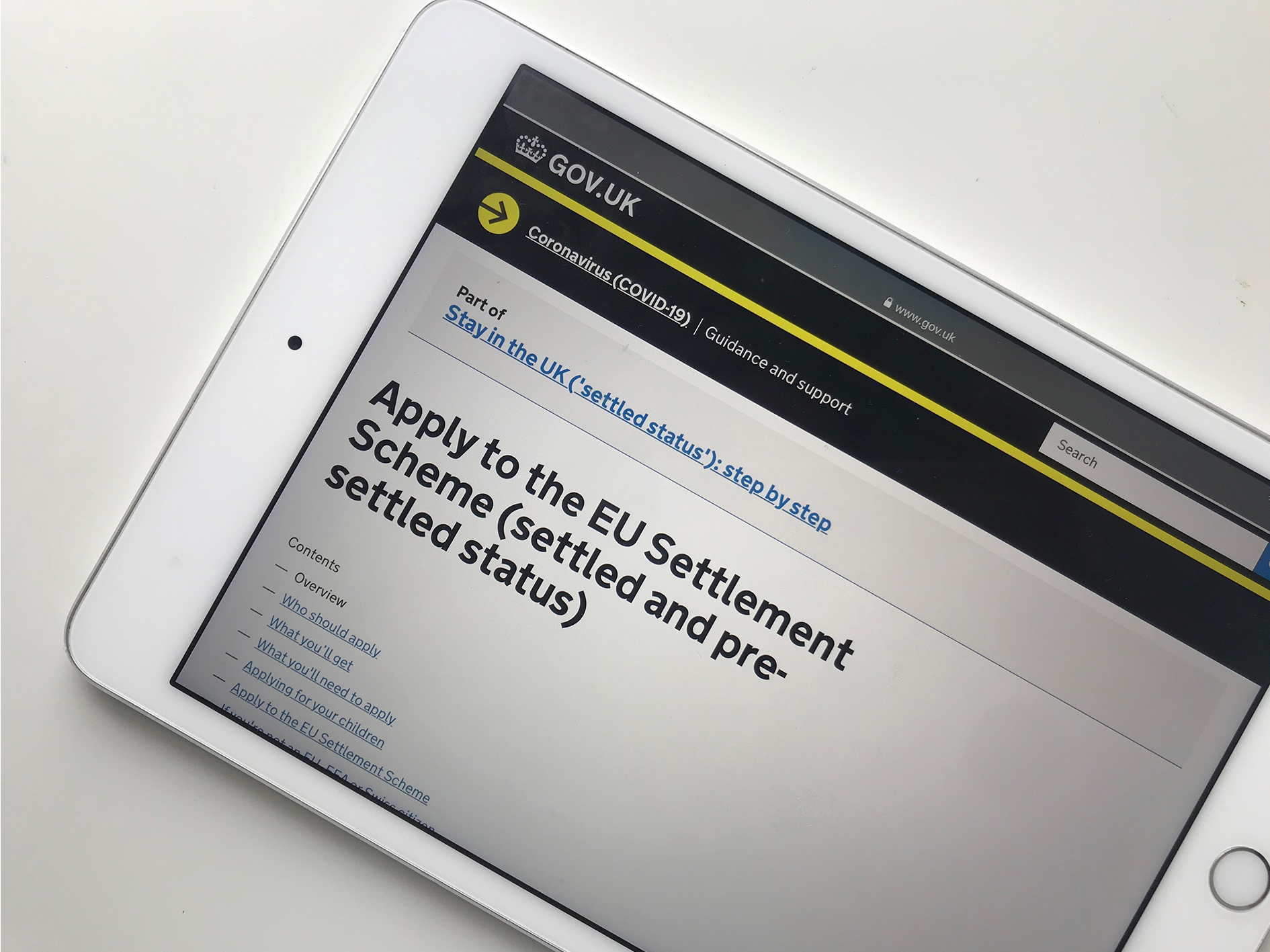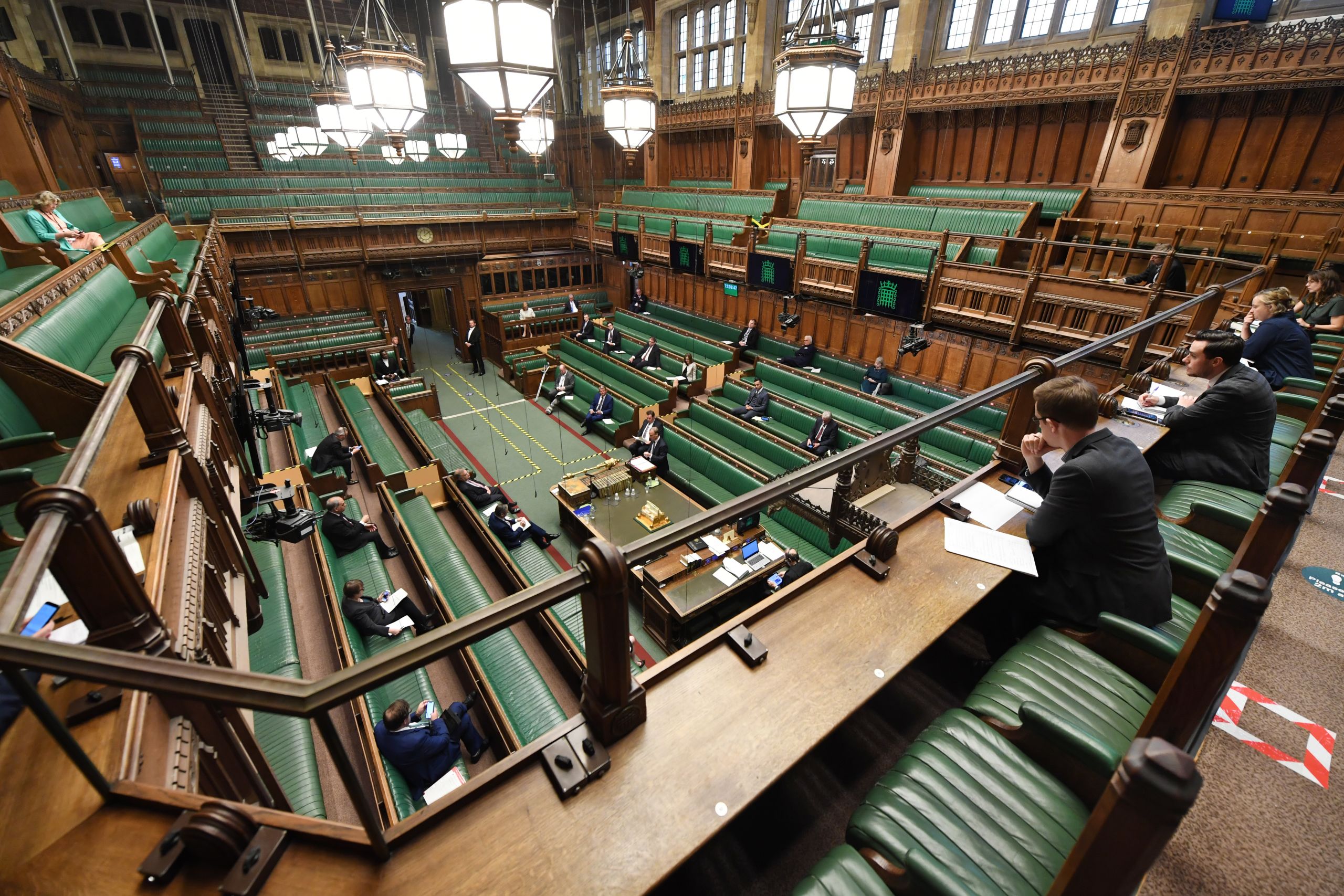How will Brexit affect UK and EU citizens' rights?
Read our recommendations to the UK Government and EU Member States on the rights of UK and EU citizens after the end of the transition period

As part of our inquiry into the progress of the negotiations on the UK’s future relationship with the EU, we have looked at the rights of UK and EU citizens after the end of the transition period and listened to views expressed to us.
In our report we address, and make recommendations to the Government on:
- The rights of UK citizens in the EU
- The rights of EU nationals in the UK
- The need for Parliamentary scrutiny after the end of the transition period
UK citizens in the EU

UK nationals living in the EU
EU Member States can choose one of two different systems to recognise the right of a person to live and work in an EU country or in the UK at the end of the transition period.
These systems are:
- A declarative system, where those meeting the conditions required automatically have rights under the Withdrawal Agreement;
- A constitutive system, where those wishing to obtain or maintain citizens' rights need to go through a mandatory application process.
The challenges posed by a constitutive system
The constitutive system, currently in place in thirteen EU countries, implies a deadline for the application process. If UK nationals miss that deadline, they could lose the right to continue to live and work in the European country they are in.
"Without an application in a constitutive system, there are no rights."
Some of the witnesses we heard from expressed their concerns about the constitutive system, and in particular about:
- The need for effective communication, to make sure UK citizens know what they need to do in order to apply in time to meet the deadlines;
- The amount of documentation needed for their application;
- The support that will be needed by some to fill in an application.
"I have a lot of concerns, but if I had to pick one out it would be that, in constitutive countries, people failed to obtain residence status because a robust communication system had not been put in place to inform them that they needed to apply."
What we are asking of EU countries that have chosen a constitutive process
- To extend deadlines for the application process if it appears that a large number of UK citizens in their country have not taken the necessary steps, and there is a possibility they would lose their status.
- To take a pragmatic approach to delays, such as when Covid-19 causes a reduction in their capacity to manage applications.
- To make information available and communicate it to those who may be affected. This has to happen now so people can prepare, and it needs to continue into 2021 reflecting any deadline.
It is vitally important that UK nationals' who reside in the EU are aware of how their situation might change and what steps they need to take to protect their rights. It is also important that as few people as possible accidentally lose these rights because they did not act in time, or did not know what they had to do.
The UK Government has provided information and some support. It makes information available on its Living in Europe website. In March 2020, it announced a UK Nationals Support Fund (NSF), comprising £3million funding for organisations to provide practical support to UK nationals and their residency applications under the Withdrawal Agreement.
The importance for UK citizens to register in EU countries where they live
Registration in an EU country is often the first step in securing rights protected by the Withdrawal Agreement. Some Member States have used their existing data on UK nationals to communicate directly to them on what they need to do next.
However, our inquiry found out that in countries such as France, Spain, Portugal and Greece, there are a large number, the total is unknown, of UK nationals who are not yet registered as resident.
Our recommendations to the UK Government
- The Government needs to monitor the effectiveness of the support provided by the organisations funded through the NSF and set out a strategy for reallocating support and resources where it becomes apparent the demand is increasing.
- We urge the UK Government do everything it can to help UK nationals in EU countries to register before the end of the transition period.
EU nationals in the UK

The EU Settlement Scheme
The UK decided to have a constitutive system meaning EU nationals have to apply to keep their status.
The EU Settlement Scheme has now received over 4 million applications, which is a considerable achievement, and for the majority of applicants it has been a success. However, we warn that the number of EU citizens in the UK who are eligible to apply but have yet to do so remains unknown.
What happens to those who miss the deadline to apply for Settled or Pre-Settled Status?
We are concerned about what happens for those EU citizens that apply after the deadline of 30 June 2021, and those who have received Pre-Settled Status, but then do not reapply in five years’ time when it expires.
Both these two groups risk becoming unlawful residents.
"The consequences for not applying in time are quite significant. […] if you do not apply by the deadline, the rights you had before will disappear.[...] you cannot work or access housing, the NHS and other vital services until you acquire a status.
Vulnerable applicants
Throughout our inquiry we have heard of difficulties faced by some EU citizens in applying for Settled Status. These could be language barriers, poor digital skills, or issues with producing documentary evidence to demonstrate their identity or residency. There will be people eligible to apply who are unaware that they need to apply, or find it difficult to find help to make their application. These factors can combine, such as elderly people in rural areas without easy access to advice, or the children in care who do not own a passport.
The case for a physical document
The Home Office currently only offers the option of a digital status for EU citizens to prove their residency status.
Throughout our inquiry we have heard concerns about how landlords, banks, employers, or public sector organisations that are familiar with asking for a passport or ID card, might not be ready or willing to go through the Home Office’s online checking process.
What we are asking of the Government:
- To publish its guidance for caseworkers on how to deal with late applications, and how it will inform citizens with Pre-Settled Status that they are able to apply for an upgrade to Settled Status.
- To prioritise communication with and support for vulnerable and hard-to-reach EU citizens, as the 30 June 2021 deadline approaches.
- To offer EU citizens in the UK the option of applying for a physical document to evidence their residency status under the Withdrawal Agreement, in addition to their digital status.
The need for continuous scrutiny of the Withdrawal Agreement

What happens at the end of the transition period?
The UK leaves the transition period on 1 January 2021 and free movement ends.
2021 will bring many changes, EU citizens in the UK will still have six months left to apply for Settled Status. Thousands of UK nationals in the EU could be faced with a new application process to acquire a status that protects their rights in the country which they thought was their home.
The need for examining the implications of these changes has not diminished, in fact, it is likely to increase.
It is important that there is continued monitoring of EU citizens' rights in the UK and of UK nationals currently living in the EU. This includes establishing the Independent Monitoring Authority in the UK, and the UK working with the EU and Member States to ensure effective oversight across the EU.
What happens next?

The Government must now respond to our report.
Our report "Implementing the Withdrawal Agreement: citizens' rights" was published on Tuesday 20 October 2020.
If you’re interested in our work, you can find out more on the Committee on the Future Relationship with the European Union website. You can also follow our work on Twitter.
The Committee on the Future Relationship with the European Union is appointed by the House of Commons to examine matters relating to the negotiations on the future relationship with the European Union.
Cover image: Free-Photos via Pixabay
